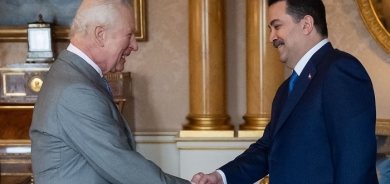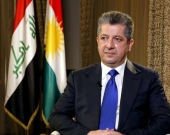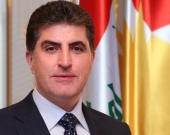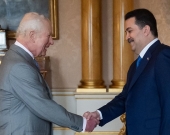Will slaves build Qatar's World Cup?

Life in the gas-rich Gulf emirate, however, soon turned sour for the French striker.
"I'm ruined," the player says. "I'm at the end of my career and I thought I'd be able to put a little money aside. Instead I've nothing left. My life is a disaster."
Belounis says his salary has been withheld for almost two years, he's prevented from playing and being held as a virtual prisoner in Qatar as the club refuses to grant the authorization he needs to leave the country.
For international labor unions, Belounis case is one among thousands involving abuse of the migrant workers who make up 8 out of 10 of Qatar's 1.5 million population.
As a soccer player though, his story has a particular resonance as Qatar prepares to become the first Middle East nations to host the game's showcase event, the World Cup.
In preparation for the 2022 World Cup, Qatar is launching a $150 billion construction program to build 12 state-of-the-art stadiums, 90,000 additional hotel rooms, a subway system, national rail network and other infrastructure needed for the event.
An expected 1 million new migrants are expected to flock to the country to take part in the construction boom.
The International Trade Union Confederation (ITUC) is warning that poor safety standards and labor laws that severely restrict migrants' rights mean Qatar is unfit to hold the World Cup, unless it takes drastic action to improve the situation.
The confederation, which groups 315 affiliated unions from 156 countries, has launched a campaign to persuade world soccer's governing body FIFA to re-run the vote that awarded Qatar the World Cup.
"This is not a government who respects human rights or trade union rights," says Sharan Burrow, secretary general of the ITUC. "Migrants are not only enslaved in terms of having no freedom of movement or freedom of employment, but they are forced to live in squalor and forced to work unsafe hours in unsafe conditions."
High on the unions' list of complaints is the so-called kafala system, which is used in Qatar and other wealthy gulf states to recruit migrant labor.
Under the system, workers are tied to the employer who recruits them and effectively prevented from changing jobs or from leaving the country, without their bosses' permission.
Belounis seems to have fallen victim to kafala. He first came to Qatar in 2007 and returned in 2010 to sign a new five-year contract with Eljaish, a club linked to the Qatari army. The Frenchman made a promising start, captaining the team as it won promotion into the Stars League, Qatar's top division.
The following season however, Belounis was told he'd be farmed out to another team in the second division team. Although reluctant, he accepted after receiving assurances from Eljaish that his salary would be paid in full.
The money, he says, never came. Belounis opened a lawsuit. Now he says he's been dropped by both clubs, preventing him from playing to earn a living for his wife and two small daughters, and unable to leave the country under the kafala rules.
"I've been living off my savings but that's reaching rock bottom now," he explained in a telephone interview. "We're surviving thanks to the generosity of the French community here."
Nearing the end of his tether, Belounis says he'll start a hunger strike if a court case slated for May 23 fails to provide a solution. Another soccer player, Moroccan international Abdeslam Ouaddou says he was in a similar situation until he was allowed to leave Qatar in November. He's still fighting to recover unpaid wages.
The CIA ranks Qatar as the world's richest country per person.
Despite its small size, the ruler, Emir Hamad bin Khalifa Al Thani, has ambitions to make the country an Arab power and is using its vast wealth to extend its influence in the world. He sent Qatari warplanes to join the NATO air campaign against Muammar Gaddafi and Qatari funds are reportedly supporting rebels in Syria.
Qatar is also using soccer to raise its global profile.
FC Barcelona carries the name of the Qatar Foundation on its shirts as part of a $195 million sponsorship deal; another top-flight Spanish club Malaga is owned by a relative of the emir; and in 2012 the Qatar Investment Authority became sole owner of Paris Saint Germain, turning the French club into one of the world's richest, able to hire the services of star players like David Beckham, Zlatan Ibrahimovic and Brazil's Thiago Silva.
Securing the World Cup was key to Qatar's soccer vision and the government invested heavily to beat off bids from the United States, Australia, Japan and South Korea. The surprise win sparked allegations — denied by Qatari officials — that some delegates to the FIFA world soccer body were bribed.
Now, the ITUC is adding to pressure for a re-vote citing the conditions faced by Qatar's 1.2 million migrant workers — mostly poor laborers from India and other nations in South and Southeast Asia.
Qatari authorities say they are taking steps to improve the situation for migrant workers. They point to a "workers' charter" adopted in March by the Qatar 2022 Supreme Committee, which has direct responsibility for building the World Cup venues.
The charter commits contractors to improving health and safety, forbids forced labor and says workers won't face punishment for lodging complaints over rights violations.
"We have always acknowledged that the current state of workers’ welfare needs to be improved," the Supreme Committee said in a statement emailed to GlobalPost. "From the very beginning, we have pointed to the power of football as a tremendous catalyst for tangibly improving labor conditions in Qatar and the region at large. From day one, we have been working towards this objective."
FIFA too said that the World Cup "offers a great opportunity for the region to discover football’s power as a platform for positive social change." Soccer's governing body said it was working with the international labor unions and Human Rights Watch to "ensure healthy, safe and dignified working conditions."
Union leader Burrows, however, said months of talks had left the ITUC unconvinced the Qatari authorities were serious about implementing reforms that would meet the unions' demands, which include freedom of association for migrant workers; fair labor courts; and an end to the kafala restrictions.
"If the government won't move on those questions then it can't be reasonable that this World Cup will be held off the backs of workers enslaved in unsafe conditions," she said.
Human rights groups have also complained that Qatar's rulers have failed to follow through on pledges that the World Cup will lead to improvements for migrants.
“If this persists, the tournament threatens to turn Qatar into a crucible of exploitation and misery for the workers who will build it,” Jan Egeland, Europe director at Human Rights Watch, said during a visit to Qatar in February.
GlobalPost












